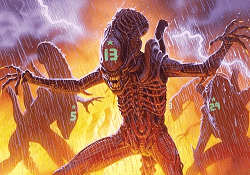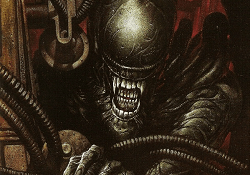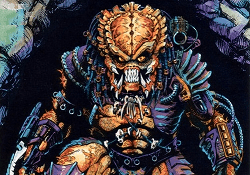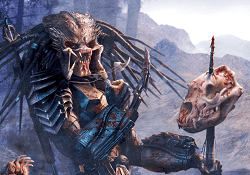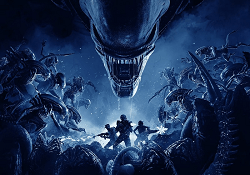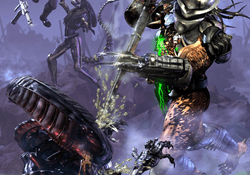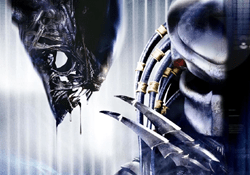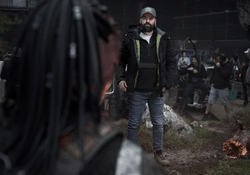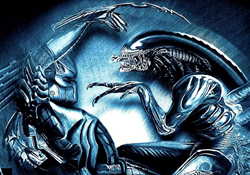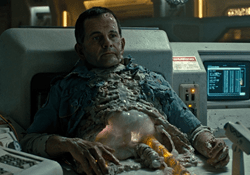Colonial Marine Ships: List Of Every Known USCM Vessel
The Colonial Marines don't employ many personnel but use massive ships to travel them across the universe. The ships are fully automated and don't even need any crew to man them while the marines are on a mission. Most of these ships are similar to the USS Sulaco, the so-called flying Pulse Rifle with many offensive capabilities. The ship names follow the convention of referencing the characters or locations from the works of Joseph Conrad.
USS Sulaco
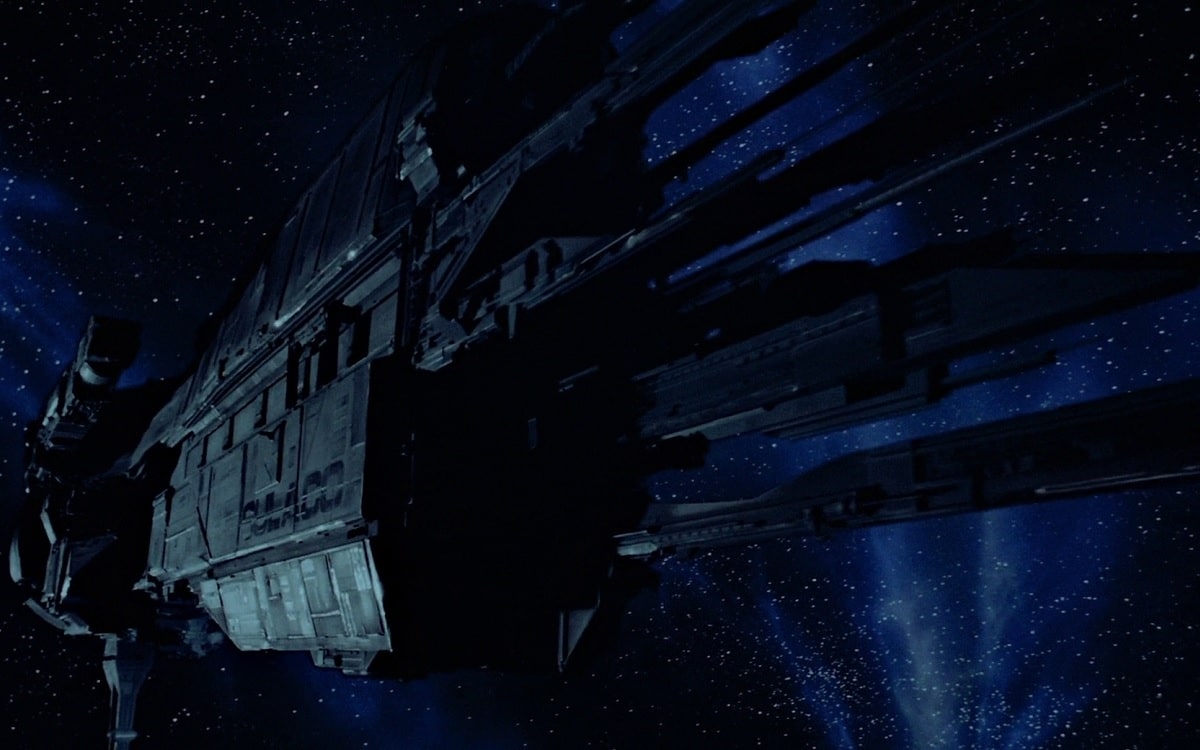
Besides the Nostromo, the USS Sulaco is probably the most well-known ship from the Alien franchise. The Sulaco was a Conestoga class troop transport ship that according to the Colonial Marines Tech Manual was built by the Lunnar-Welsun Industries. The ship transported the Colonial Marines from Gateway Station to LV-426, where most of them were wiped out. On the return journey, a fire broke out in the cryogenics department and all survivors were jettisoned. The question of where the Alien egg came from and the final destination of the ship is probably the biggest mystery in the Alien lore. Alternate fates for the ship exist in various Alien games, including Alien 3: The Gun (stayed near Fury 161), Aliens: Colonial Marines (returned and crashed to LV-426) and Aliens: Infestation (drifted aimlessly in space).

USS Tyrargo
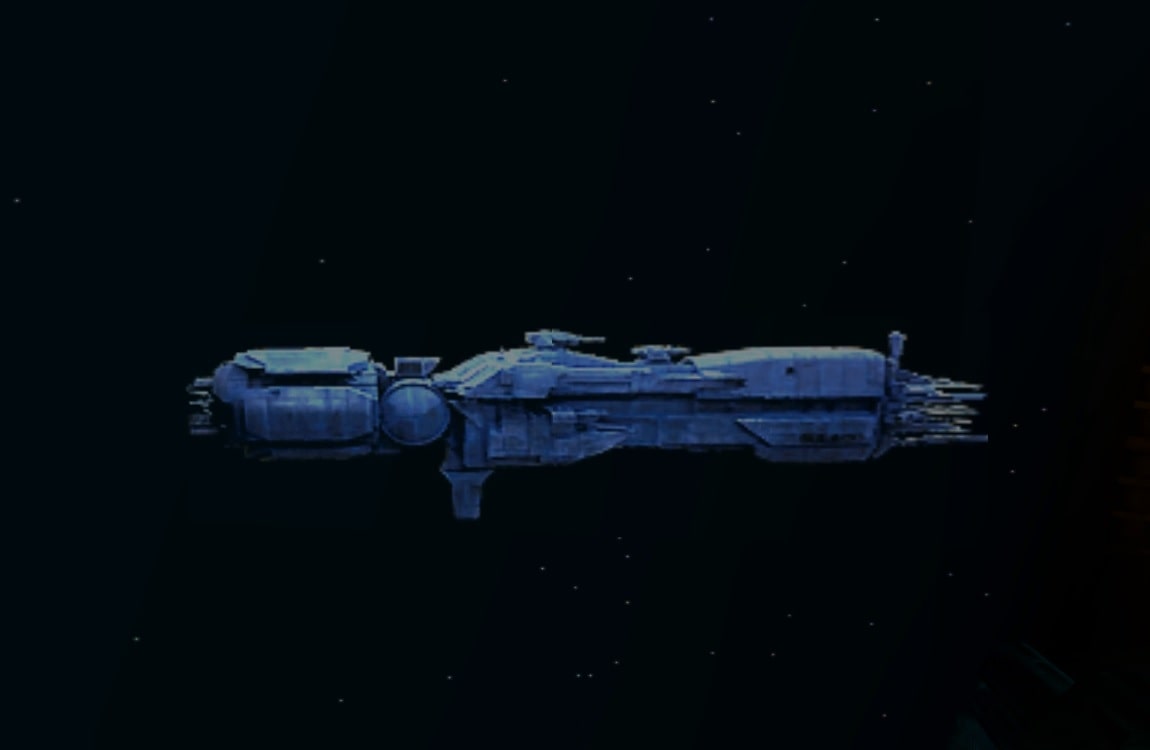
Although the Colonial Marines Technical Manual states that the Conestoga class was soon to be decommissioned, many sister ships of the USS Sulaco exist. One such ship was the USS Tyrargo from Aliens vs. Predator Classic, which looked exactly the same. The ship was docked with the Odobenus station near LV-426 and was suffering under a heavy Xenomorph infestation. The Tyrargo is the most difficult level in the Colonial Marine campaign and features many tough enemies, including Praetorians, Predaliens, and Predators. The final boss level against the Alien Queen takes place in the hangar of the ship. Similarly, to the end of Aliens, the Queen is jettisoned out of the airlock, but other Xenomorphs still inhabit the ship and its final fate is unknown.
USS Verloc
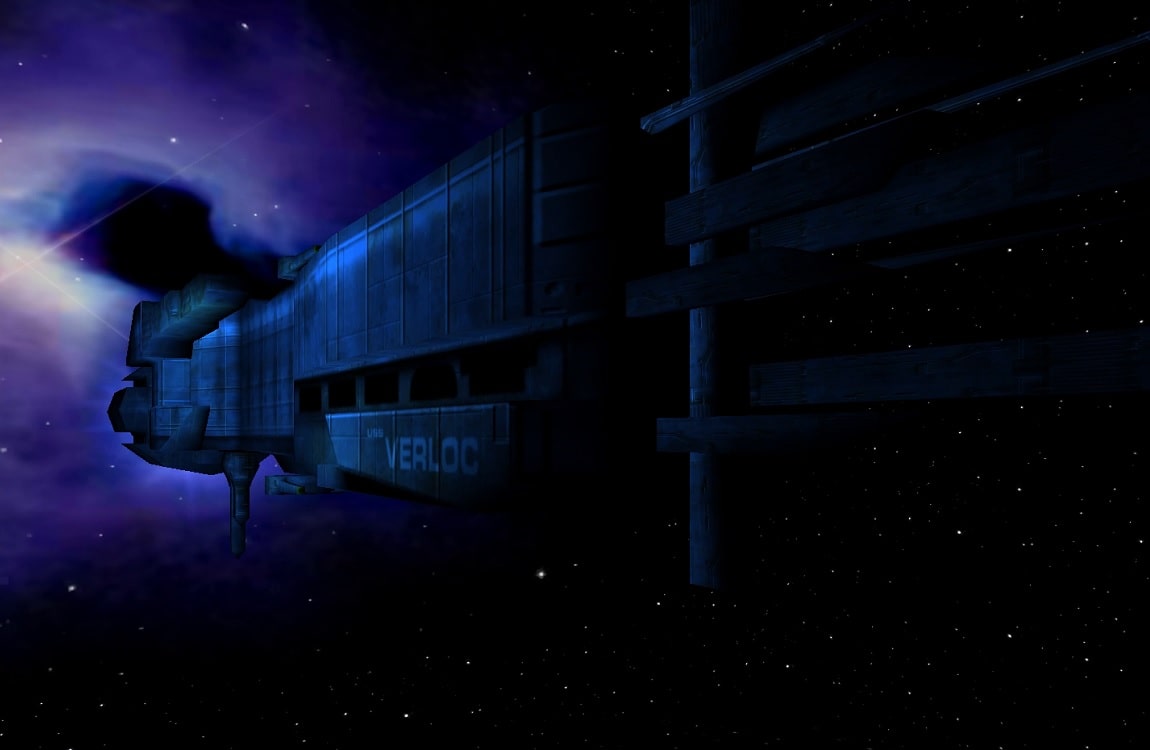
The Verloc from Aliens vs. Predator 2 is one of the few warships in the franchise that both survived intact and wasn't infested by Xenomorphs. It carried the Colonial Marines under Major McCain to LV-1201, responding to a distress signal sent by the Weyland-Yutani science team. The ship was supposedly also the Conestoga class, although with bit more sleek appearance. At the end of the story mode of the campaign, the ship leaves LV-1201 with the surviving marines, followed by a Predator ship. The USS Verloc was said to carry a mysterious "Mule", although it's not clear if it is a Space Jockey artifact or something else.

USS Marlow
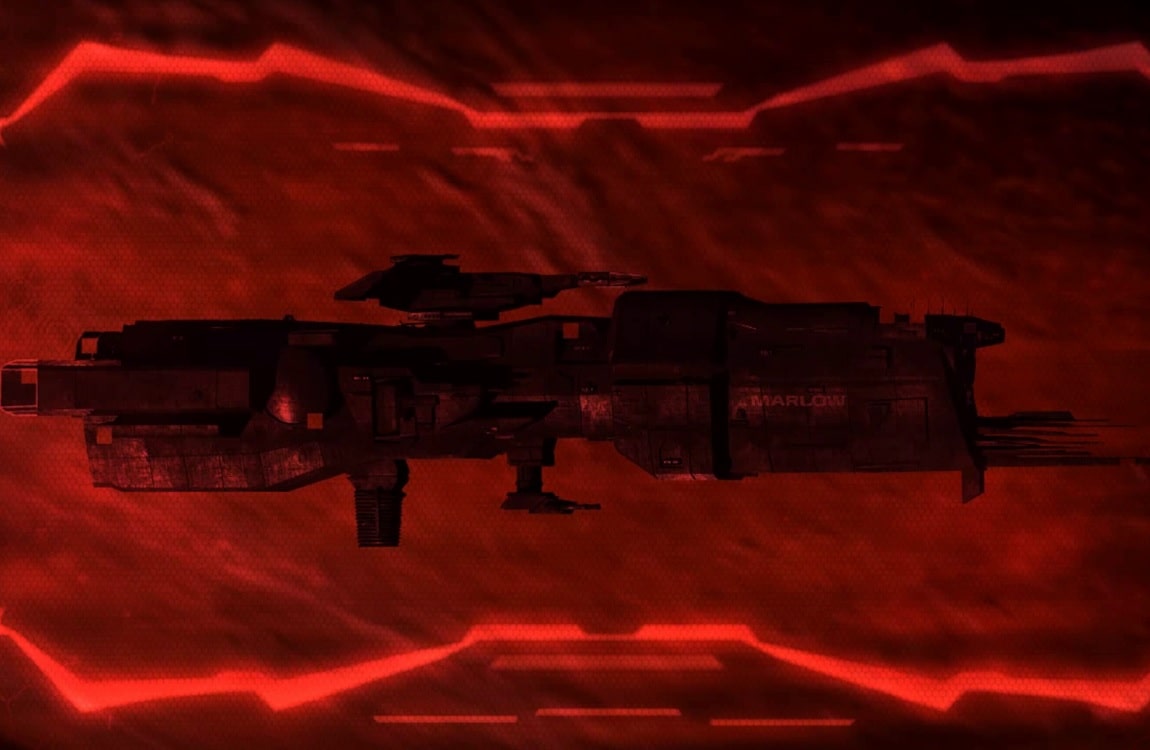
The USS Marlow from Aliens vs. Predator 2010 carried the Colonial Marines to BG-386, answering another distress signal. The starship was the Bougainville class which was already mentioned in the Colonial Marines Tech Manual and was a new type of ship destined the replace the decommissioned Conestoga class. The main difference with the Conestoga class seemed to be the massive top turret and fewer antennas in the front. However, the heavier firepower never came to use, as soon after arriving in orbit and releasing a few dropships, the USS Marlow was destroyed by a cloaked Predator mothership. The surviving marines did manage to get some payback, as private Rookie killed several Predators and escaped the planet alive with Corporal Tequila.
USS Sephora
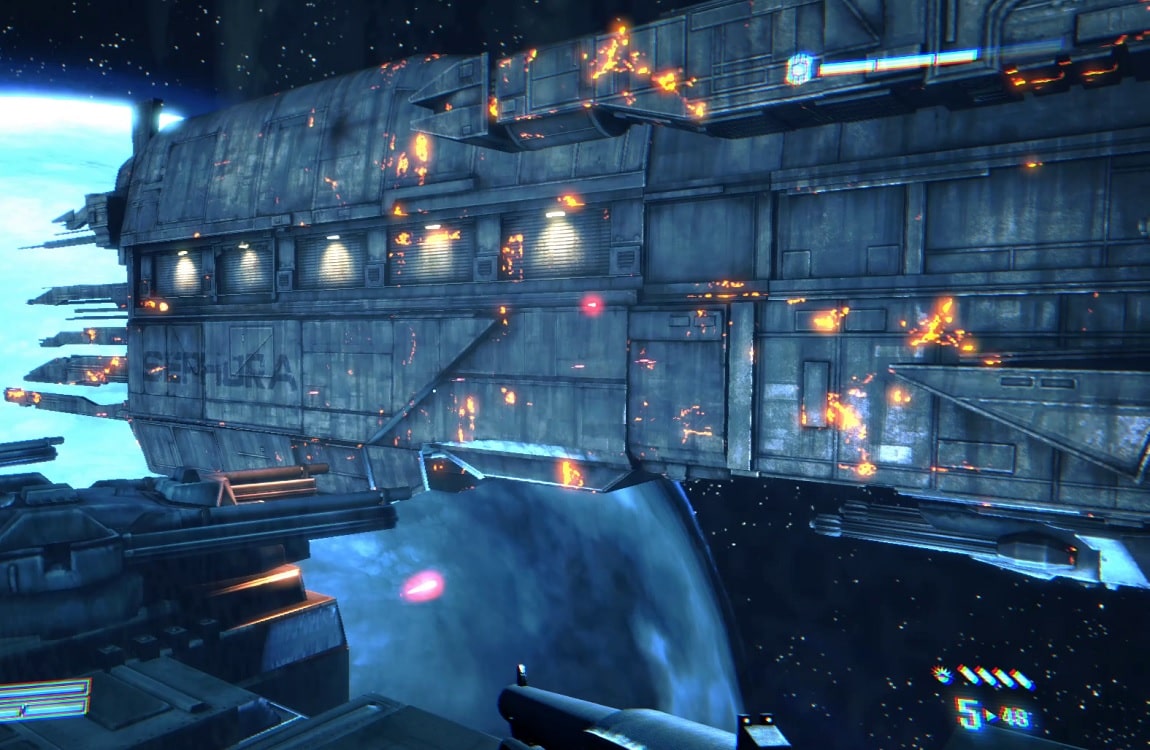
The USS Sephora was another sister ship of the Sulaco and appeared in Aliens: Colonial Marines. In the game, the Sulaco suddenly appeared in orbit of LV-426, and the USS Sephora was sent to investigate 17 weeks after the events of Aliens (not 17 days for some reason as mentioned in the movie). The Sephora pulled up close to the Sulaco and parked alongside its hull, connecting to the mystery ship with an umbilical tunnel. Soon after, all hell broke down on the ship, Weyland-Yutani mercenaries started to shoot the marines and the Sephora was destroyed by Sulaco's weapons. This was one of the few times in the series where the Colonial Marine starship guns could be seen in action. The Sulaco crashed on LV-426 soon after and left the marines missing another two of their ships.
USS Melville
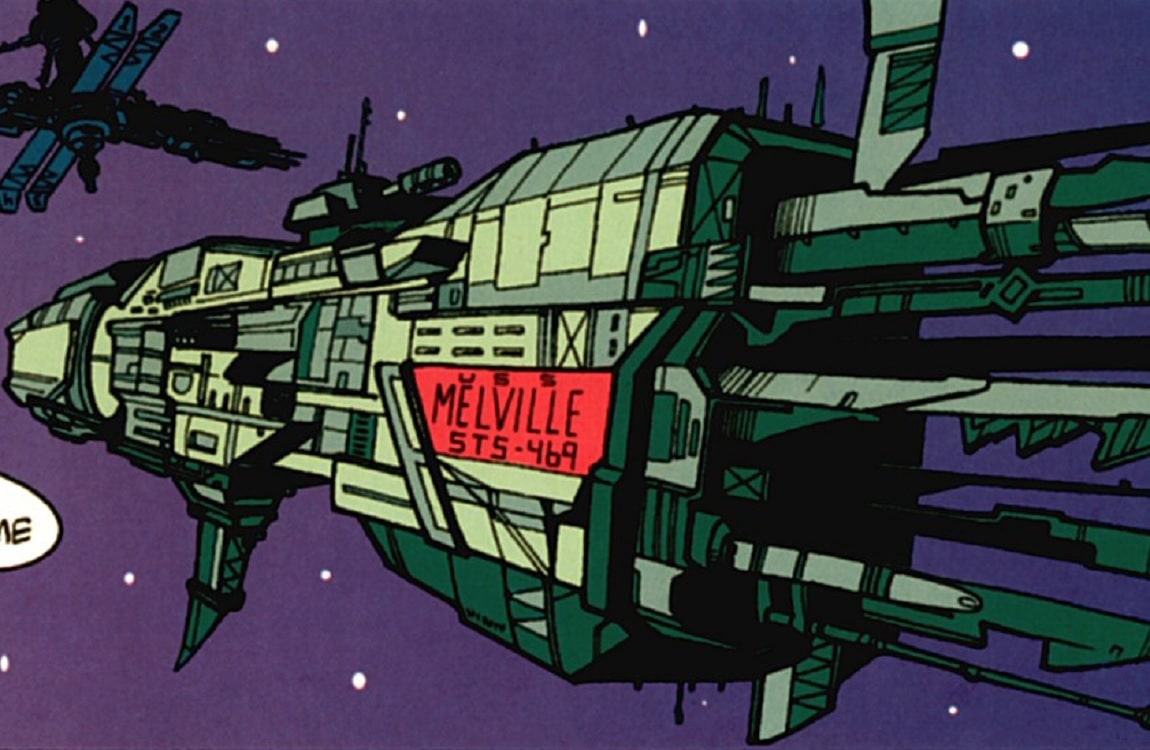
The USS Melville wasn't just a sister ship of the USS Sulaco, it actually contained the sister of Vasquez, one of the marines from Aliens. In the Aliens: Colonial Marines comic, Carmen Vasquez and dozens of other marines formed a "bad batch" of soldiers headed by Lieutenant Henry, who was assigned to the ship after assaulting an officer. The Melville was sent to Bracken's World, a backwater kelp-farming colony to help clear an infestation of aquatic Aliens. While the marines fought the Aliens, a crew member named Beech was left to maintain the ship. However, he had a massive Royal Jelly withdrawal and failed to do it - the ship's orbit decayed and it crashed into the atmosphere of the planet. The Colonial Marines were stranded on the planet but managed to leave in a modified dropship later.
Nemesis
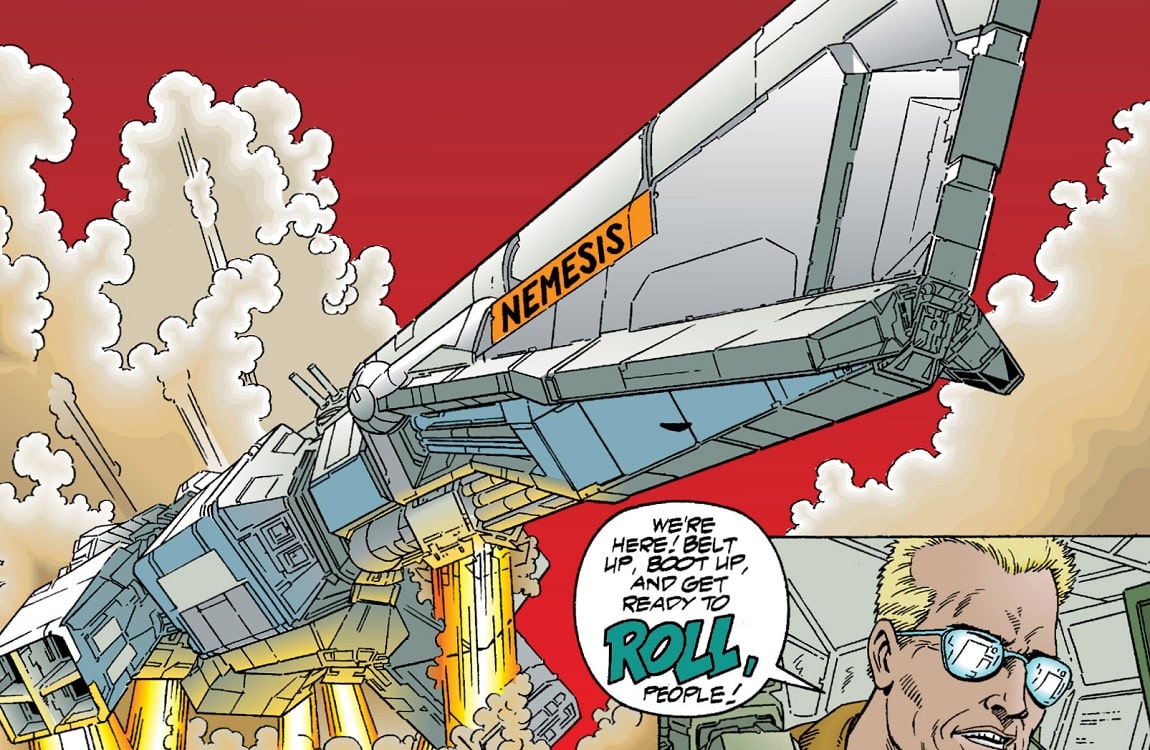
The Nemesis belonged to a joint Weyland-Yutani and Colonial Marine attack program titled Berserker, which was tasked with taking our Alien hives after the Xenomorph outbreak on Earth. The ship was built by Weyland-Yutani and was perhaps the most unique looking out of all the Colonial Marine starships. The offensive capability of the team rested in its infantry and MAX power armor, so the ship wasn't heavily armed itself. The Nemesis Berserker unit was dispatched to Service Terminal 949 to exterminate a large Alien hive (over 1000 victims). The team got into trouble due to the huge number of Xenomorphs and facehuggers alongside the betrayal of their commanding officer. The station was destroyed together with the Nemesis in a nuclear explosion caused by a failsafe device, used to exterminate all Aliens if the team should fail.
USS Hasdrubal
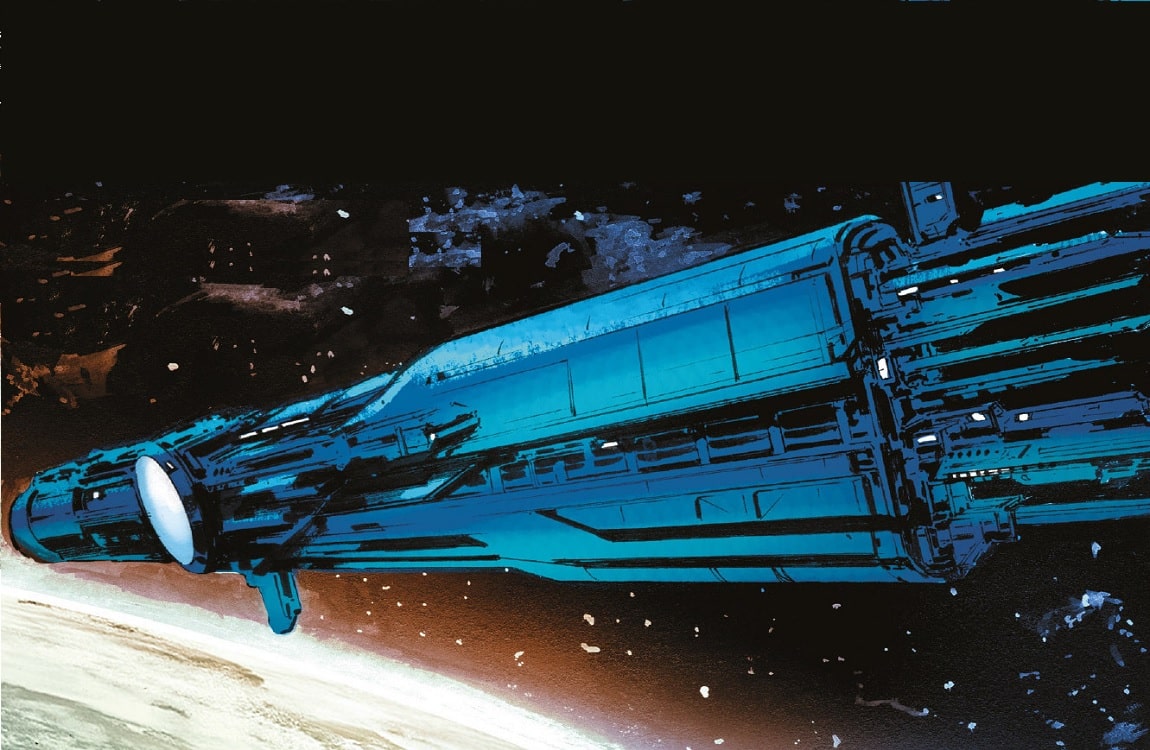
The USS Hasdrubal is one of the more recent Colonial Marine ships that appears to be another Conestoga class, but it is unclear. Appearing in the epic Life and Death saga, it carried a platoon of Colonial Marines commanded by Captain Paget to LV-797. In the battles on the surface involving both Xenomorphs and Yautja, the platoon lost about half of its soldiers. The ship then rerouted to LV-223 following an Engineer ship and further battles occurred in an ancient Engineer temple. In the end, the ship survived and started its 6-week trip back to Earth, with Captain Paget sending a status report before going to cryosleep.
USS Tarawa
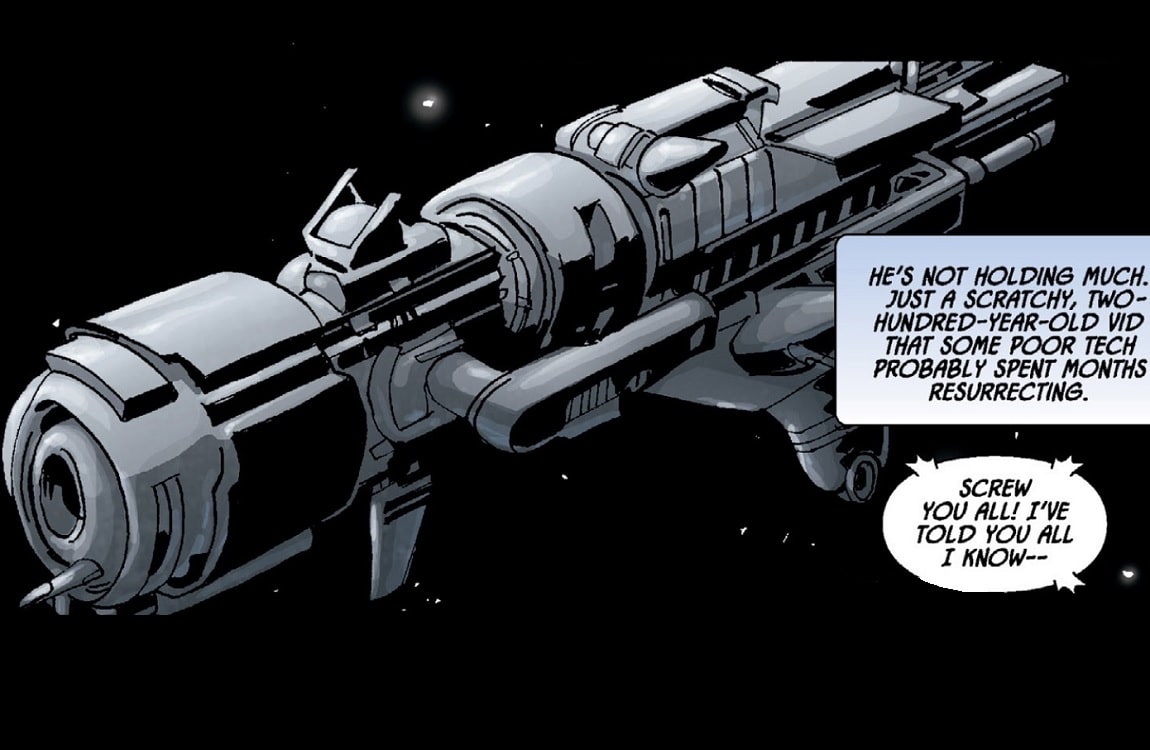
The frigate USS Tarawa served as a base for Machiko Noguchi and a platoon of Colonial Marines in the epic Alien vs. Predator: Three World War comic series. They teamed up with a clan of Jungle Hunter Predators with the aim of taking down the Killer Predator clan. The USS Tarawa joined a fleet of other Colonial Marine ships and Predator spacecraft in a big space battle above Caparis VII, while troops were landed on the surface as well. This was one of the few occasions in the Alien franchise when a fleet of Colonial Marine ships has assembled. The Killer Predator clan could not survive this combined onslaught and were defeated.
USCSS Esmeralda
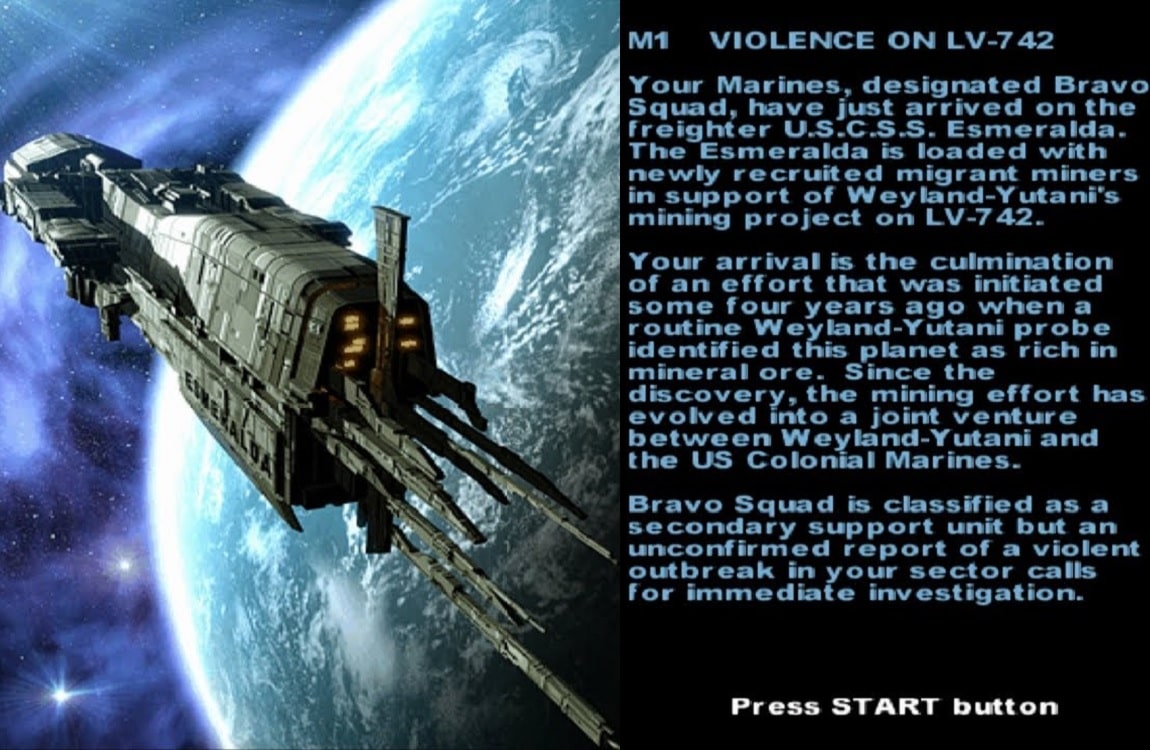
The USCSS Esmeralda strayed away from the usual designation of USS, and instead had a civilian designation of USCSS, perhaps hinting at co-ownership of the ship. Nevertheless, it was a Colonial Marine ship that deployed the Bravo Squad to LV-742, the planet of the main conflict in the Aliens vs. Predator: Extinction strategy game. Bravo Squad was sent to the planet to contain a Xenomorph outbreak but soon found themselves fighting the Yautja as well. The USCSS Esmeralda regularly sent down supplies with dropships and stayed in orbit through the conflict. Otherwise a completely regular Conestoga-class ship, it did employ the mysterious AURORA laser targeting system.
UAS Endeavor
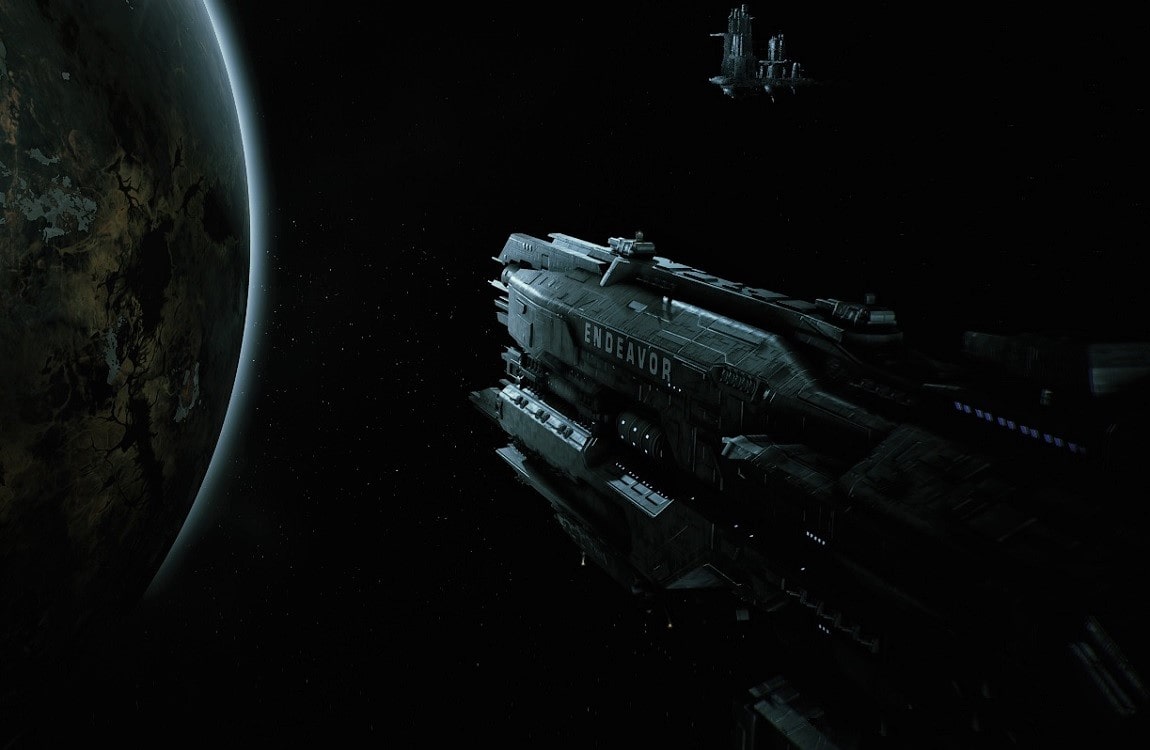
Aliens: Fireteam Elite introduced a new assault ship to the series - the UAS Endeavor. It served as a hub for the players to upgrade their weapons and armor, view any intel and join up with other Colonial Marines for new battles. In the lore, the ship was commissioned in 2194 and had served for about ten years during the events of the game. Surprisingly, the ship had no nuclear weapon capabilities, and two fireteams had to be sent to the Katanga Refinery to blow it up from the inside. The Endeavor was just begging for a campaign level (or horde mode) inside its corridors and flight deck, which is still a possibility for a DLC pack.
USS Otago
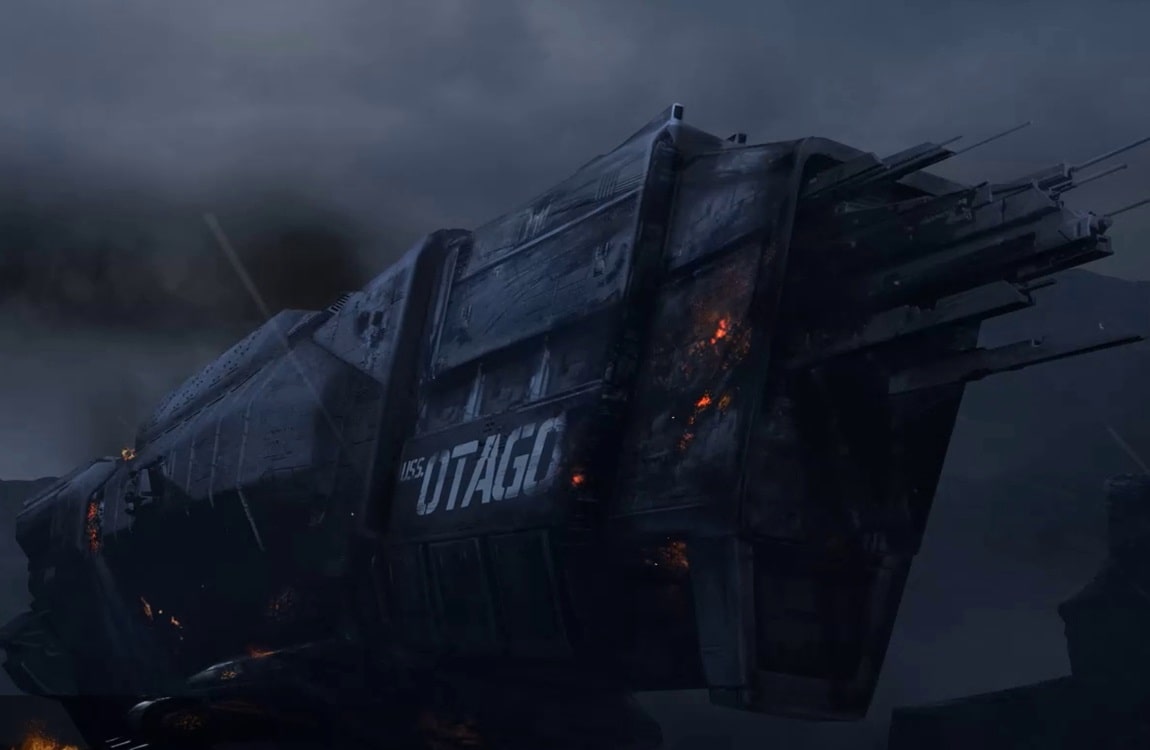
The USS Otago from Aliens: Dark Descent is one of the very few Colonial Marine ships to crash land on a planet and survive. Following the financial constraints brought on by the Tientsin campaign, multiple Andastes class troop carriers underwent modifications, transforming them into light assault starships for the USCM. The USS Otago, originally one of these carriers, was part of this transition. Remarkably, despite its makeshift adjustments, the ship managed to serve for several years unscathed - that is, until its fateful descent on Lethe. After repairs that took several weeks and cannibalizing parts from nearby installations, the USS Otago was able to break away from Lethe and escape to hyperspace.
USS Francis Marion
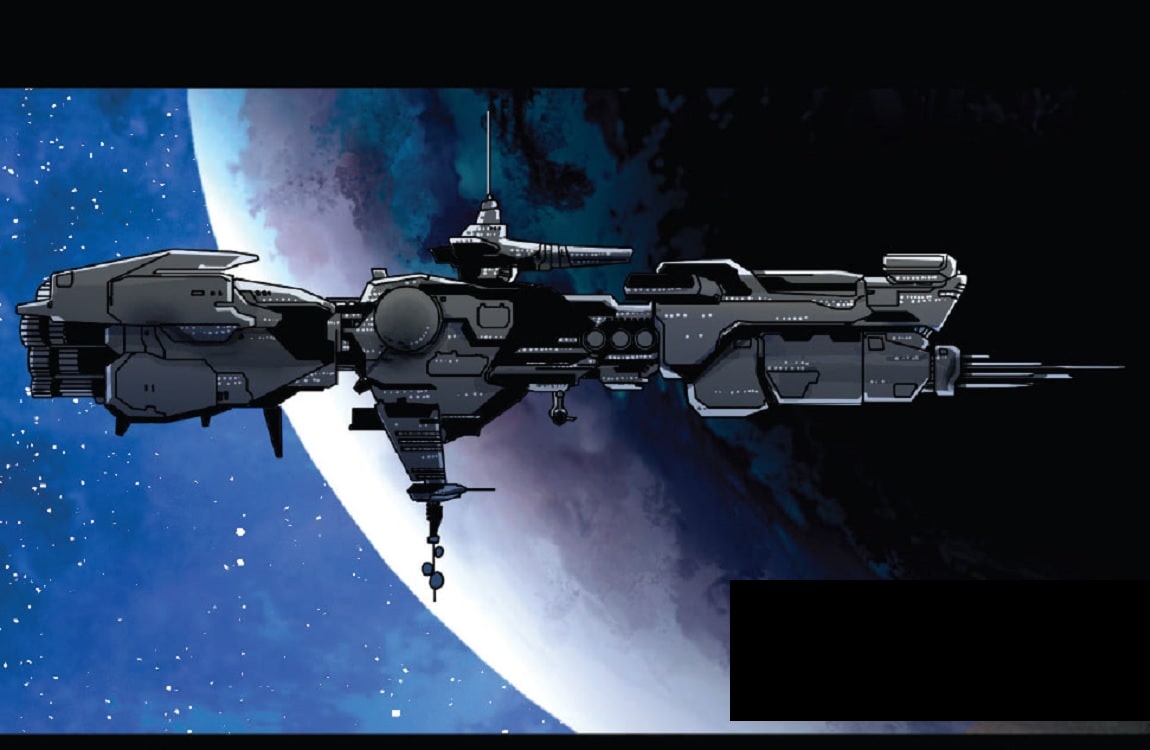
The first Colonial Marine starship introduced into the Marvel Alien comic series was the USS Francis Marion, a vessel of unknown type. In Alien: Annual, set 7 years before the ongoing Alien series, a squad of Colonial Marines was sent to investigate Nishimura Station and neutralize a vigilante threat. Accompanying the marines was Gabriel Cruz, the protagonist of the later Alien series. The station launched anti-aircraft rockets at the ship, causing severe damage, a testament to the vulnerability of these spacecraft. In the end, Cruz escaped in an EEV and the ship remained floating in space, harboring a Xenomorph infestation that had spread from the station. The USS Francis Marion was named after an actual US navy Paul Revere-class attack transport vessel launched back in 1954.
Brilliant
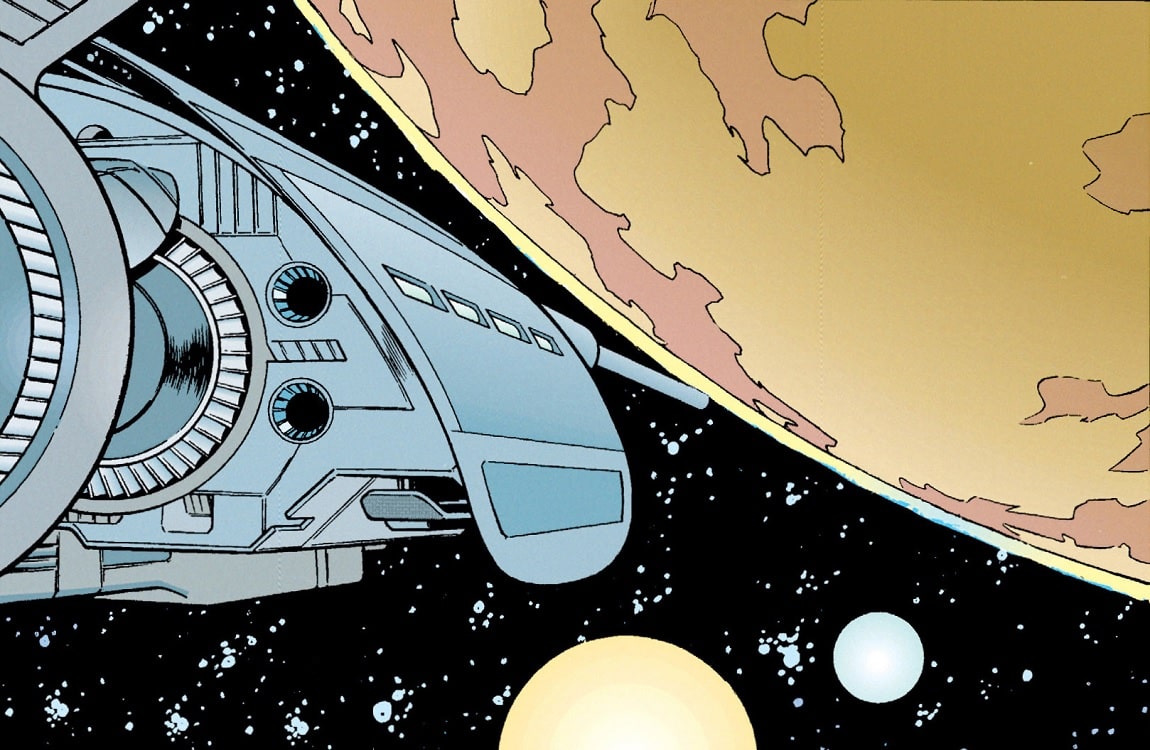
The combat ship named Brilliant from Aliens vs. Predator: Duel was one of the few larger Colonial Marine vessels that could land on a planet. Its size was about halfway between a Conestoga-type cruiser and a UD-4 "Cheyenne" Dropship, however, it was capable of faster-than-lightspeed travel that the dropship was not suited for. The Brilliant and its platoon of Colonial Marines answered a non-human distress signal from Ryushi and touched down upon it. An All-Terrain Colonial Marine vehicle departed from the vessel with a compliment of marines and the ship left for orbit. Later, when the marines encountered a threat of both Xenomorphs and the Yautja (the source of the transmission), the Brilliant was called back down. However, a lone Predator with a heavy plasma cannon blew up the ship, stranding the survivors on the planet.
The Benedict
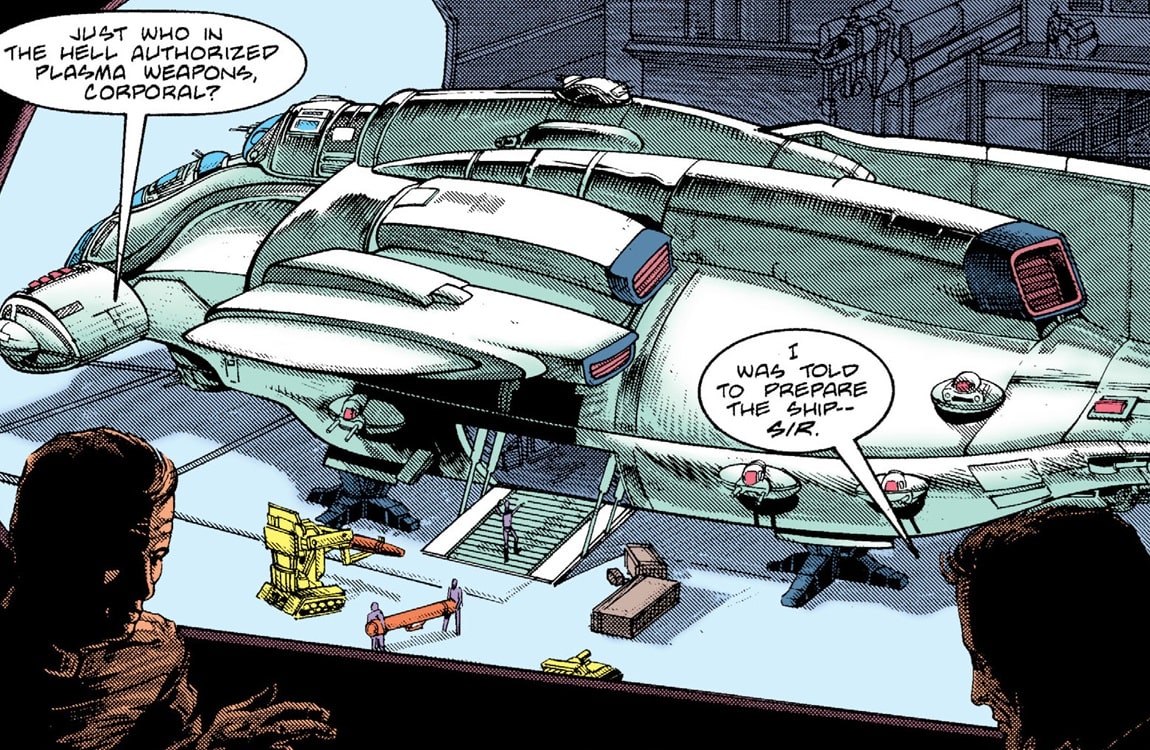
The Benedict was a Colonial Marine ship deployed on a mission to the Xenomorph homeworld, carrying a squad of marines and advanced military equipment. The ship became embroiled in a deadly conspiracy when Colonel Stephens, its commanding officer, betrayed the mission by conspiring with mercenary Patrick Massey. Massey and his team boarded the Benedict and held Hicks (or Wilks) prisoner while the unarmed marines were sent planet-side as bait for the Xenomorphs. Amid sabotage and mass casualties, Newt (or Billie) freed Hicks, and together they retook control of the ship, ultimately escaping with three survivors. The mission revealed the Benedict's dark secret: all marines aboard, except Hicks and Stephens, were combat androids, reflecting the dangerous lengths humanity went to secure a Xenomorph specimen.
The American
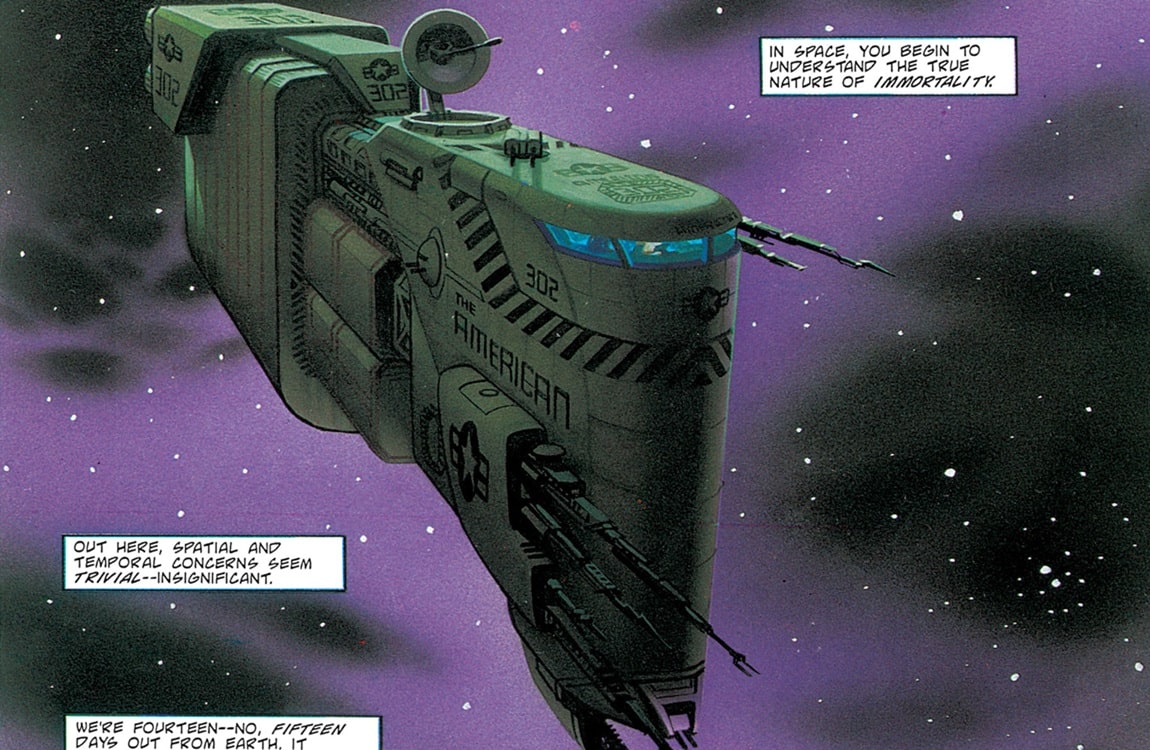
The American was an automated cargo drone ship, appearing at the end of Aliens: Outbreak and the beginning of Aliens: Nightmare Asylum. Designated with the number 302, it ferried the survivors of the Alien/Earth War (Wilks, Billie, and a damaged android named Bueller) from Earth to a seemingly unknown location. Unbeknownst to the passengers, the ship held a cargo of infected humans in stasis onboard, some of which birthed Xenomorphs during the journey. After Wilks and Billie dealt with the Xenomorph threat, the ship reached the secret Third Base of Generals Spears, who was not happy that some of his "pets" had died.
Conclusion
In conclusion, the Colonial Marine ships are central to the Alien franchise, transporting marines across the universe and enabling them to engage in high-stakes missions. These ships are typically large, fully automated vessels that do not require crew for basic operations. Their designs, often similar to the USS Sulaco, reflect a powerful but small military force ready for combat. Many of these ships, such as the USS Tyrargo, USS Verloc, and USS Marlow, encounter Xenomorph infestations, Predators, and other threats. Despite their advanced capabilities, the ships often face tragic fates, either being destroyed completely and left wrecked in space.
Tag Categories: Alien Universe Ships, Colonial Marine Lore

